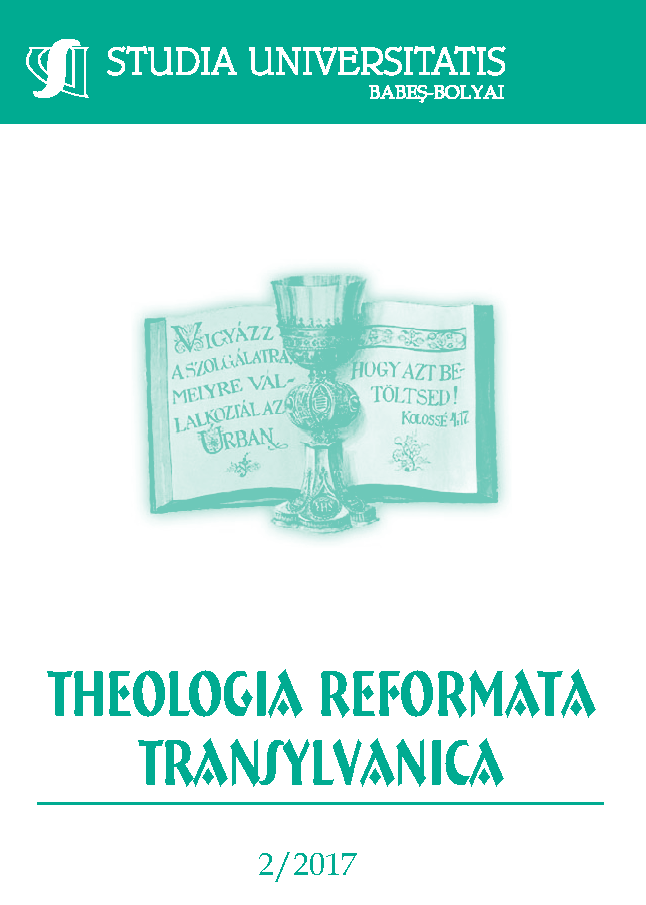Kommunikatív konfliktusmegoldás. Problémamegoldók-e a mediáció résztvevői?
DOI:
https://doi.org/10.24193/subbtref.62.2.11Keywords:
mediation, communicative action, problem solving, transformation, consense, interpersonal argument.Abstract
Communicative conflict-solving The essential promise of the mediation is that it can help to avoid on both sides the dead-end defined in the research results of the Harward Negotiation Project, which reduces the chance of an agreement. Mediation creates a possibility for the parties to overcome on one side the attitude, which struggles to subordinate the strengths of the other side. This occurs, when any of the parties emphasizes only his own interpretation about the situation, or offers only his own solution proposals, without any kind of self-reflection or the curiosity towards the arguments of the other party. This attitude is labeled: “the parties are enemies”. On the other side, mediation overcomes the attitude, which would seek at any price a modus vivendi, through compromises, which lead to abandoning the own principles. This attitude is labeled: “the parties are friends”. Mediation also helps finding a new ability of the parties meant to coexistence to provide common efforts. This attitude is labeled: “the parties want to solve problems”. The last possibility among the mutual satisfaction may ground for long term the effective cooperation and success of the parties. On this level it may lead to communicative action. In this study I analyze the narratives and thematization of the mediation in the local literature from the point of view of finding an answer to the question: to what account does the process of mediation make possible the realization of the communicative action (Ferenczi, 2010).References
ABEL, Richard (1982). ”The contradictions of informal justice.” In Abel, R. (Ed.). The politics of informal justice. New York: Academic Press.
BÁRÁNDY Péter (2008). Közvetítői eljárás büntetőügyekben. In KONDOROSI Ferenc LIGETI Katalin (Szerk.). Az európai büntetőjog kézikönyve (pp. 681–682). Budapest: Magyar Közlöny Lap- és Könyvkiadó.
BARCY Magdolna SZAMOS Erzsébet (2002). „Mediare necesse est”: A mediáció technikái és társadalmi alkalmazása. Budapest: Animula.
BURGER, Warren (1982). ”Isn’t there a better way?” American Bar Assotiation Journal, 68, 274–277.
BUSH, Robert, A. BARUCH FOLGER, Joseph P. (1994). The promise of mediation: Responding to conflict through empowerment and recognition. San Francisco: Jossey-Bass Inc.
BUSH, Robert A. BARUCH FOLGER, Joseph P. (2005). The promise of mediation: The transformative approach to conflict. San Francisco: Jossey-Bass Inc.
CSÉCSEI Roland (2003). Szerződéses jogviták és mediáció. In EÖRSI Mátyás ÁBRAHÁM Zita (Szerk.). Pereskedni rossz! Mediáció: A szelíd konfliktuskezelés (pp. 67–87). Budapest: Minerva.
EÖRSI Mátyás (2001). Jogi Fórum. http://www.jogiforum.hu/interju/4 (utolsó megtekintés dátuma: 2017. szeptember 18.).
EÖRSI Mátyás Ábrahám Zita (Szerk.). (2003). Pereskedni rossz! Mediáció: A szelíd konfliktuskezelés. Budapest: Minerva.
ERDÉLYI Katalin (2003). Mediációs lehetőségek a társasági jog területén. In EÖRSI M. ÁBRAHÁM Z. (Szerk.). Pereskedni rossz! Mediáció: A szelíd konfliktuskezelés (pp. 88–103). Budapest: Minerva.
FERENCZI Andrea (2003). A mediáció csökkentheti az erőszakot. Párkapcsolat – Konfliktuskezelő Magazin, I–III.
FERENCZI Andrea (2010). A konfliktus, ami összeköt. A mediáció mint a bizalomépítés eszköze. Doktori disszertáció. Kézirat.
FINEMAN, Martha. (1988). ”Dominant discourse, professional language and legal chance in child custody decisionmaking.” Harvard Law Review, 101(4), 727–774.
FISHER, Roger, URY, William PATTON, Bruce (1998). A sikeres tárgyalás alapjai. Budapest: Bagolyvár.
GÖNCZ Kinga WAGNER Károly (2003). Konfliktuskezelés és mediáció. In EÖRSI M. ÁBRAHÁM Z. (Szerk.). Pereskedni rossz! Mediáció: A szelíd konfliktuskezelés (pp. 7–48). Budapest: Minerva.
GÖNCZÖL Katalin (2007). Helyreállítható igazságszolgáltatás – helyreállítható bizalom. Élet és Irodalom, LI(39).
HABERMAS, Jürgen (1994). Válogatott tanulmányok. Budapest: Atlantisz.
HERCZOG Mária (Szerk.). (2003). Megbékélés és jóvátétel: Kézikönyv a helyreállító igazságszolgáltatásról. Budapest: Család, Gyermek, Ifjúság Közhasznú Egyes.
HERCZOG Mária (2007). Jóvátétel és megbékélés. Népszabadság. Január 29.
KARDOS Ferenc ÁBRAHÁM Zita (2003). Különélő szülő kapcsolattartása gyermekével – mediáció a legkisebbek védelmében. In EÖRSI M. ÁBRAHÁM Z. (Szerk.). Pereskedni rossz! Mediáció: A szelíd konfliktuskezelés (pp. 131–149). Budapest: Minerva.
KERESZTY Éva (2003). Közvetítők az egészségügyben: az Egészségügyi Közvetítői Tanács. In EÖRSI M. ÁBRAHÁM, Z. (Szerk.). Pereskedni rossz! Mediáció: A szelíd konfliktuskezelés (pp. 150–174). Budapest: Minerva.
LÉVINAS, Emmanuel. (1976). Martin Buber és a megismerés elmélete. In LÉVINAS, E. (1997). Nyelv és közelség (pp. 95–112). Pécs: Tanulmány-Jelenkor.
LOMNICI Zoltán (2006). Legyen kötelező a mediáció? Népszabadság. Június 15.
LOVAS Zsuzsa HERCZOG Mária (1999). Mediáció, avagy a fájdalommentes konfliktuskezelés. Budapest: Múzsák.
LOVAS Zsuzsa HERCZOG Mária (2002). Családi mediáció. In Herczog M. (Szerk.). Együtt vagy külön (pp. 141–157). Budapest: KJK-Kerszöv.
PAPP Zsolt (1987). A racionalitástól a kommunikatív racionalitásig. Jürgen Habermas társadalomelméleti szintéziséről. In Csepeli György, Papp Zsolt Pokol Béla: Modern polgári társadalomelméletek (pp. 51–152). Budapest: Gondolat.
STRASSER, Freddie RANDOLPH, Paul (2005). Mediáció: A konfliktusmegoldás lélektani aspektusai. Budapest: Nyitott Könyvműhely.
URY, William (1993). Tárgyalás nehéz emberekkel. Budapest: Bagolyvár.
WAHRHAFTIG, Paul (1982). ”An overview of common-oriented citizen dispute reso-lution programs in the United States”. In Abel, RICHARD. (Ed.). The politics of informal justice. Vol. 1: The american experience. New York: Academic Press.
WEINSTEIN, Martha (2001). ”Community mediation: providing justice and promo-ting transformation”. Conflict Resolution Quarterly, 19(2), 251–259.
Downloads
Published
How to Cite
Issue
Section
License
Copyright (c) 2017 Studia Universitatis Babeș-Bolyai Theologia Reformata Transylvanica

This work is licensed under a Creative Commons Attribution-NonCommercial-NoDerivatives 4.0 International License.






